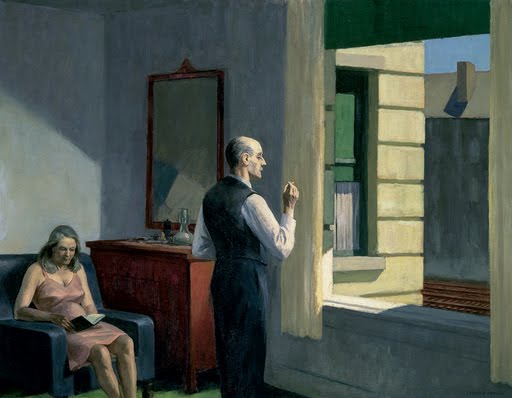
Self-proclaimed futurologist Ian Pearson has produced a report for Travelodge, the British hotel chain, about the future of sleep and hotel rooms: The 2030 Future of Sleep Report. Despite the date referenced in the title, the report actually speaks consistently about what to expect by 2035. You’d think that one of the first lessons for the contemporary futurologist would be that a lot can happen in five years. I guess futurologists need copy editors, just like the rest of us. Among the things Mr. Pearson expects is the presence of more smart surfaces, including fabrics. Bed sheets will produce calming scents as they sense they are necessary for us.
We will fall into carefully medically monitored sleep while checking e-mail or watching TV via contact lenses that will work with our eyes closed. (And if that is not your idea of hell…) Or those same lenses will facilitate virtual sex, including the chance to alter the appearance of a partner without the partner knowing about it. (Score one for intimacy there.) Recorded dreams will ease our sleep, or help to educate us while we sleep. Rooms will be very spare, with most of the decorative elements extensively customizable because they will be provided by virtual imaging technology. People will be able to shop in their rooms by calling up a virtual store, or hold meetings by calling up a virtual meeting room. If all this is what Travelodge has to prepare for, imagine what will be going on at the high-end hotels.Oddly enough, Mr. Pearson does not mention things like bedbug-proof rooms or any cleanliness-related issues beyond expecting robots to clean rooms. No mention of showers with adequate water pressure. No mention of alarm clocks with obvious and unambiguous methods of setting them. No mention of dynamic ambient noise cancellation so that guests don’t have to overhear to the virtual sex going on next door. No mention of air conditioners that do not wake you every time they cycle on or off, or keep you up by blowing directly on you. (To be fair, it’s possible that the latter two are implied in Pearson’s prediction that guests will be able to create any kind of sound/temperature/visual environment they want in their rooms — so, for example, you can arrange the room to simulate a forest if you want to feel like you’re camping out.)In the end, I have to give Mr. Pearson credit for going out on a limb and predicting that we will still need to sleep away a third of our lives in 2035, and even sometimes still have trouble getting to sleep. Maybe he is even quietly implying that in some of the real ways that motels and hotels fall short today that I noted above, they will continue to fall short in the future. That’s my kind of futurology. And yet one has to wonder about the big topic that Pearson prudently fails to mention: if all these virtual wonders are available, why am I traveling at all? Maybe Travelodge should diversify by investing in the holodeck business.

